An imprint of Rowman & Littlefield
Distributed by NATIONAL BOOK NETWORK
Copyright 2016 by Douglas Alan Cohn
All rights reserved. No part of this book may be reproduced in any form or by any electronic or mechanical means, including information storage and retrieval systems, without written permission from the publisher, except by a reviewer who may quote passages in a review.
British Library Cataloguing in Publication Information Available
Library of Congress Cataloging-in-Publication Data
Names: Cohn, Douglas, author.
Title: The presidents first year : none were prepared, some never learnedwhy the only school for presidents is the presidency / Douglas Cohn.
Description: Guilford, Conn. : Lyons Press, 2015. | Includes bibliographical references and index.
Identifiers: LCCN 2015026143| ISBN 9781493011926 (hardcover) | ISBN 9781493023950 (e-book)
Subjects: LCSH: PresidentsUnited StatesHistory. | PresidentsUnited StatesBiography.
Classification: LCC E176.1 .C73 2015 | DDC 973.09/9dc23 LC record available at http://lccn.loc.gov/2015026143
 The paper used in this publication meets the minimum requirements of American National Standard for Information SciencesPermanence of Paper for Printed Library Materials, ANSI/NISO Z39.48-1992.
The paper used in this publication meets the minimum requirements of American National Standard for Information SciencesPermanence of Paper for Printed Library Materials, ANSI/NISO Z39.48-1992.
NOTES ON THE TEXT
In the text, each title (except Washington) is followed by the first year of service.
In the text subtitles, each president is followed by the term of service.
Quotes retain original spelling and grammar; sources are in the endnotes.
Organization is by subject; however, the first president under each heading is listed in semi-chronological order, with the first president listed under the preceding heading.
Tables and original charts are integral to the narrative and are accordingly referenced when applicable to more than one chapter.
With the Act of Union, England, Wales, and Scotland became Great Britain in 1707 and the United Kingdom following the addition of Ireland in 1801. To avoid confusion, Britain is used throughout the text. England is referenced in several quotes.
Military service listed in the opening biography for each president begins with the highest rank attained.
INTRODUCTION THE FRESHMAN PRESIDENT
The only school for presidents is the presidency. This is the Presidents Paradox.
There are long and short paths to power, though the times matter more than time to an inattentive public, which explains the broad range of presidential competencies, and why in a discussion of each presidents first year in office, none come away unscathed. While George Washington, Warren G. Harding, and Harry S. Truman entered the office with justifiable trepidation, most of the others expected to hit the ground running, only to discover they hit the ground struggling. The president is the nations chief executive, commander-in-chief, and, since 1941, leader of the free world, yet all new presidents are unqualified for this crushing combination. Bill Clinton later admitted: I dont know that anyone feels adequate to it in the beginning. None were prepared; some never learned; few excelled.
In recognition of the legislative learning curve, first-year senators and representatives are appropriately described as freshmen, yet this condescending, though applicable, appellation has never been applied to a president. It is in that critical freshman year (which for the purposes of this book is defined as twelve to eighteen months due to different swearing-in and congressional convening dates) when a president learnsor does not learnhow to do the job. Each of them made mistakes attributable to freshman-year failings, which is why a fair analysis must separate the first year from subsequent years of every presidency, and since all presidents play to posterity, we can almost hear them pleading through the mists of time for a freshman-year exemption. Unlike monarchs of bygone yearsranging in ability from Alexander the Great to far-from-great Louis XVIwho were generally trained for their future roles, democratically elected leaders, with the possible exception of John Quincy Adams, were not, an abundance of experience and innate ability notwithstanding.
No president has simultaneously been a congressionally attuned politician (LBJ), political philosopher (Jefferson and Madison), dynamic leader (Theodore Roosevelt), large-scale manager (Eisenhower), constitutional scholar (Wilson), foreign policy expert (John Quincy Adams and Buchanan), student of military strategy (the twelve general presidents), courage-tested veteran (from acclaimed soldier Washington to decorated sailor Kennedy), historian (Theodore Roosevelt, Wilson, and Kennedy), environmentalist (Theodore Roosevelt), great communicator (FDR and Reagan), or engineer (Hoover). Among other fields, sociology, science, and infrastructure should be included, and not one president was a trained economist, although through appointments, executive orders, tax initiatives, budget proposals, and vetoes, no one person has a greater impact on the financial affairs of the nation than the president. As a result, presidents must rely upon others; they must delegate. Yet, all too often our presidents lacked sufficient subject knowledge to make qualified appointments and, instead, based such decisions upon biases, partial knowledge, and uneven advice. In no field has this been more apparent than in selections for secretary of the Treasury, because presidents generally failed to distinguish between personal or even state budgets and the federal budget, the foremost differences being the national governments near limitless ability to print and borrow money and seemingly limitless ability to levy taxes, fees, and tariffs.
Several presidentsperhaps mostbelieved they understood the ongoing machinations of foreign governments and leaders, but generally believed a nation protected by two large moatsthe Pacific and Atlantic Oceansneed not be overly concerned. They were wrong. Napoleon Bonapartes actions directly impacted events leading to the War of 1812; Kaiser Wilhelm IIs ill-advised decisions tripped one upon another until America was forced to stumble into World War I; and the theories of renowned British economist John Maynard Keynes allowed leaders and finance ministers who heeded his words to devise the economic means to fuel the massive military buildups of men and modern machines in Germany, Italy, and Japan that led to World War II (see Chapter 15, chart).
The American presidency is littered with first-year failures and mis-steps. Upon Franklin Roosevelts unexpected-expected death, a stunned, self-deprecating Harry S. Truman unguardedly told a throng of astonished, grieving reporters, Boys, if you ever pray, pray for me now. I dont know if you fellows ever had a load of hay fall on you, but when they told me yesterday what had happened, I felt like the moon, the stars, and all the planets had fallen on me. Known for bluntness and humility, Truman was only admitting what even the most egotistical and self-confident of new presidents thought or ought to have thought.
The presidency is so demanding and the burden so great that no one person could possibly be prepared for it, and of those whose areas of expertise and experience came closest, none came closer in the twentieth century than Herbert Hooverwhose one-term presidency was marred by a fatal flaw in the oxymoronic subjective science: economics.


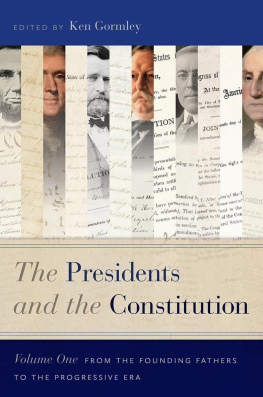
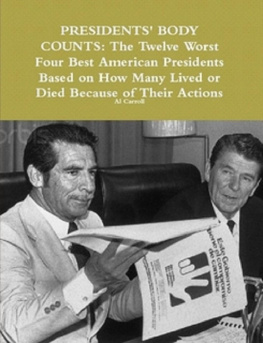
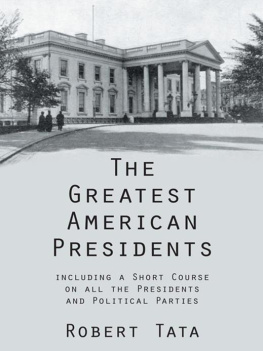
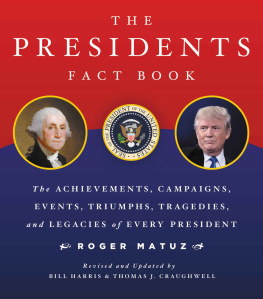
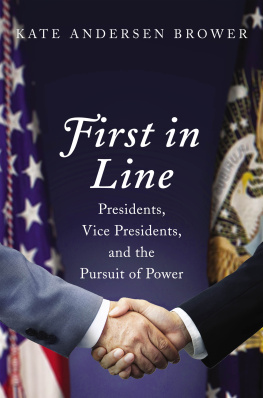
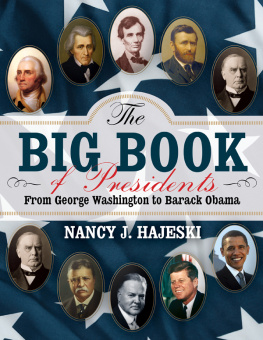
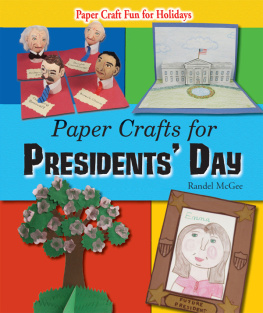
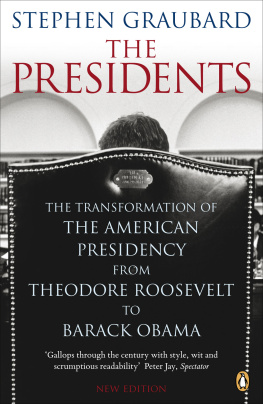


 The paper used in this publication meets the minimum requirements of American National Standard for Information SciencesPermanence of Paper for Printed Library Materials, ANSI/NISO Z39.48-1992.
The paper used in this publication meets the minimum requirements of American National Standard for Information SciencesPermanence of Paper for Printed Library Materials, ANSI/NISO Z39.48-1992.